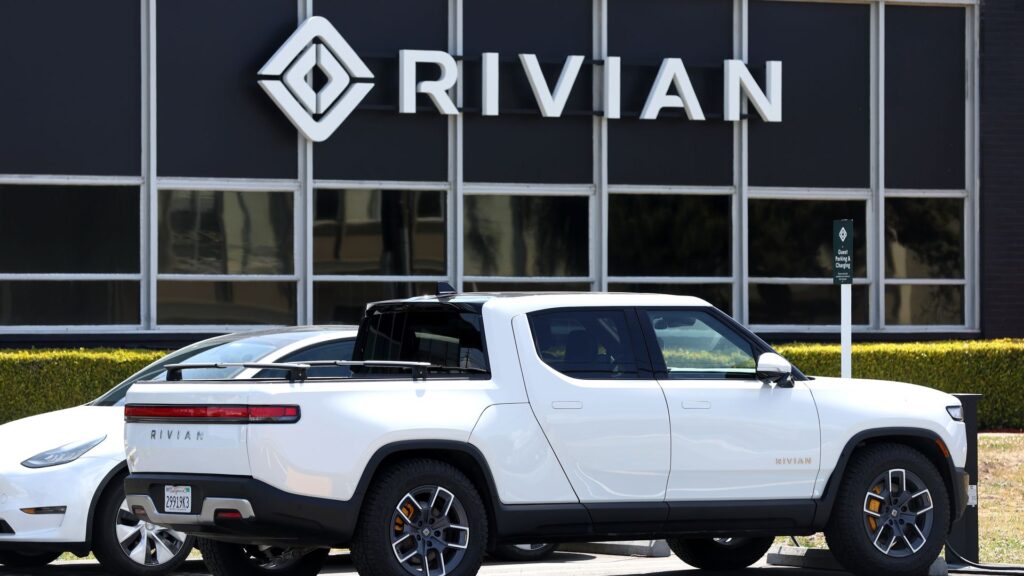Congress overrode California’s 2035 electric vehicle mandate after a party-line vote in the Senate, which could set a new precedent for rule-making across the federal government. Lawmakers also voted to override the state’s emissions standards for diesel trucks, including heavy-duty and commercial vehicles.
How we got here
California has a special carve-out in the Clean Air Act, which allows the state to ask the Environmental Protection Agency for permission to create regulations that are stricter than the federal government’s. If the EPA approves, it will grant California a waiver.
No other state can do that, but any state can adopt California’s stricter standards.
Carmakers often build vehicles to align with California’s standards, which means they either meet or exceed the rules in every other state.
At the end of the Biden administration, the EPA gave California permission to require all new cars in the state to be zero emissions by 2035 and to set new emissions rules for diesel and commercial vehicles.
Why Republicans opposed California’s rules
Republicans opposed the rules because they said the transition would be costly, the country doesn’t have the infrastructure to support it, and they argued it was, in essence, the government telling people what cars they’re allowed to drive.
“For carmakers, the consequences are severe. If you don’t sell enough electric vehicles, California is saying to them and to the other states that signed onto this, even when Americans don’t want to buy them, too bad!” Sen. John Barrasso, R-Wyo., said. “These people will pay a fine of $20,000 per vehicle.”
Why Democrats supported the rules
Democrats support the rules and believe they will help move the entire world toward greener energy faster.
“They proved if you create the right incentives, the technology will move in the right direction, and it has successfully,” Sen. Dick Durbin, D-Ill., said.
Democrats also opposed how Republicans overturned California’s waivers.
What’s the Congressional Review Act?
Unbiased. Straight Facts.TM
Around 1-in-4 new cars registered in California in 2024 were electric vehicles, according to the California Energy Commission.
The Congressional Review Act, or CRA, allows Congress to overturn a federal agency rule with a simple majority vote. If both houses of Congress and the president sign on, the rule cannot take effect.
Republicans contend these EPA waivers meet all the requirements of the CRA. However, the Senate Parliamentarian, the nonpartisan official in charge of ensuring the chamber follows its own rules, said the California waivers do not fall within the CRA. That decision was based on a Government Accountability Office analysis.
So Republicans used what’s called the nuclear option to change Senate rules and vote on the waiver despite the parliamentarian.
“It is an improper use of the so-called nuclear option, which essentially avoids the cloture provisions of our rules,” Sen. Richard Blumenthal, D-Conn., said.
Cloture is the process of ending debate or overcoming the filibuster. So when Democrats say Republicans are avoiding cloture, they’re in essence saying they are going around the filibuster. That’s an accusation Republicans deny.
“I think at this point it should be abundantly clear that what we’re doing has nothing to do with the legislative filibuster,” Sen. John Thune, R-S.D., said. “But while I’d love to think that reality would prevail, I fully expect Democrats to continue to misrepresent the situation.”
Thune is contradicting himself.
In January, Majority Leader Thune was asked during an interview with Punchbowl News whether he’d advise his party against overriding the parliamentarian. He answered, “That’s totally akin to killing the filibuster. We can’t go there.”
Republicans contend the Government Accountability Office was out of line by ruling the EPA waiver was not subject to Congress’ Congressional Review Act authority.
“If we don’t do that, that is a major shift in power to the administration that will be abused by Republican and Democrat administrations alike. That is a transition of power to the article one branch that we’re not going to allow to happen,” Sen. Thom Tillis, R-N.C.
Democrats warned Republicans that they are changing Senate precedent in a way that likely cannot be undone.
“What goes around comes around. If Republicans are willing to overrule the parliamentarian and hijack the CRA in a way that has never been used before, they will not like it the next time they are in the minority,” Sen. Chuck Schumer, D-N.Y., said.
Both chambers of Congress have voted to overturn California’s EPA waivers. The last step in the process is President Trump’s signature.
contributed to this report.


